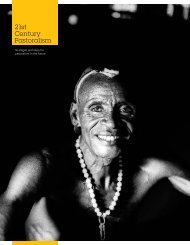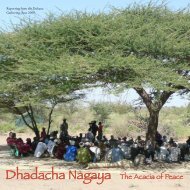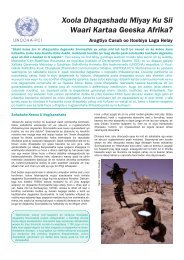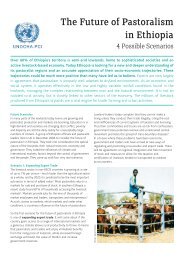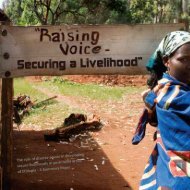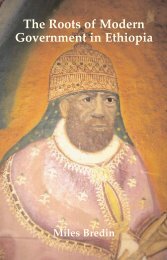Download PDF (1.47Mb) - the Website of the Pastoralist ...
Download PDF (1.47Mb) - the Website of the Pastoralist ...
Download PDF (1.47Mb) - the Website of the Pastoralist ...
You also want an ePaper? Increase the reach of your titles
YUMPU automatically turns print PDFs into web optimized ePapers that Google loves.
ABOUT<br />
ACTION RESEARCH<br />
Why do it?<br />
Action research produces knowledge that is unique, fitting and timely. The researchers, who are ordinary people<br />
not outside experts, gain new insight, skills and direction from <strong>the</strong>ir involvement. O<strong>the</strong>rs who want to understand<br />
a situation, a group or a place, can also gain unique insight.<br />
What makes it useful?<br />
“Our team has got this knowledge in doing this research. We know what we want<br />
to do now.”<br />
If its evidence can be easily checked by <strong>the</strong> people who want to use it, <strong>the</strong>y will judge it as valid.<br />
If it responds to people’s own questions, uses <strong>the</strong>ir language and way <strong>of</strong> speaking, fits with <strong>the</strong>ir philosophy, and is<br />
set in a familiar context it is likely to add to <strong>the</strong>ir knowledge and understanding.<br />
They may <strong>the</strong>n convey this knowledge to o<strong>the</strong>rs in whatever language is suitable and <strong>the</strong>y and o<strong>the</strong>rs can take<br />
informed action in line with what <strong>the</strong>y have learnt.<br />
What are its principles?<br />
“We learnt <strong>the</strong> things that can make a good researcher. We had golden rules<br />
where we had respect, listening and keeping an open mind – not judging.”<br />
There are three basic principles that should be applied at every stage <strong>of</strong> action research to guarantee its<br />
au<strong>the</strong>nticity and good effect. Based on a philosophy <strong>of</strong> trustworthiness, <strong>the</strong>se principles prove endlessly useful<br />
in making decisions about facilitation, building and working as a team, engaging with o<strong>the</strong>r people, dealing with<br />
sponsors, managing and interpreting material, taking conclusions out to people, and taking action.<br />
Openness – <strong>the</strong> researchers need to be open to <strong>the</strong> possibility that <strong>the</strong> person<br />
or people being spoken to, or <strong>the</strong> material <strong>the</strong>y are collecting, can tell <strong>the</strong>m<br />
something different from what <strong>the</strong>y already know. It calls for engagement.<br />
Respect – <strong>the</strong> researchers need to believe that what people say is likely to be<br />
true, is worth something and will teach <strong>the</strong>m something. They must also respect<br />
<strong>the</strong>ir own knowledge. It calls for polite but unstinting curiosity and discussion.<br />
Listening – <strong>the</strong> researchers need to make an effort to understand what <strong>the</strong><br />
person or situation is saying. What is heard needs to make sense. It calls for<br />
attention and clarification.<br />
How were <strong>the</strong>se principles put into<br />
practice in Karamoja?<br />
1. Background : p5<br />
2. Role <strong>of</strong> <strong>the</strong> facilitators : p6<br />
3. Building <strong>the</strong> research team : p7<br />
4. Finding <strong>the</strong> topic & setting <strong>the</strong> questions : p9<br />
5. Planning <strong>the</strong> research : p11<br />
6. Researching in <strong>the</strong> villages and kraals : p13<br />
7. Analysis : p14<br />
8. What Next : p17<br />
- 4 -



